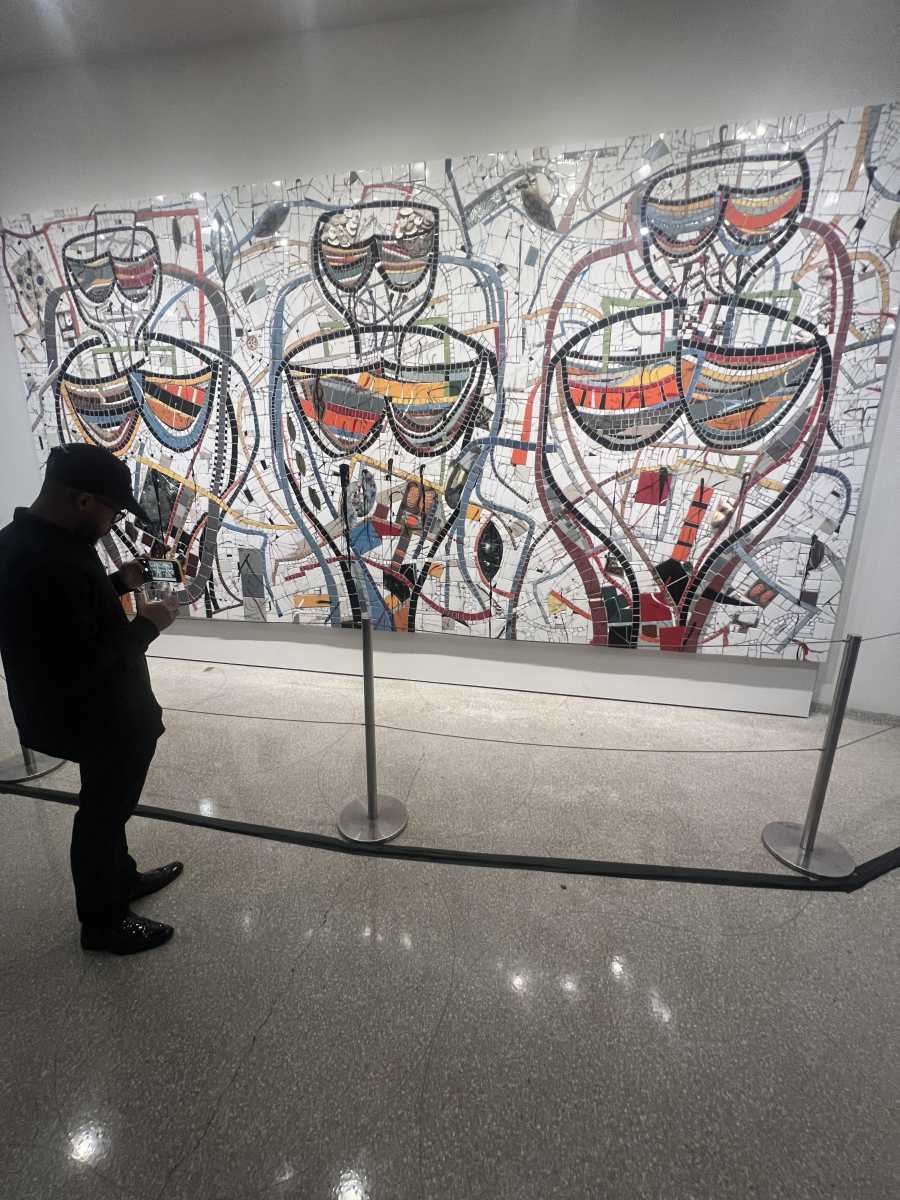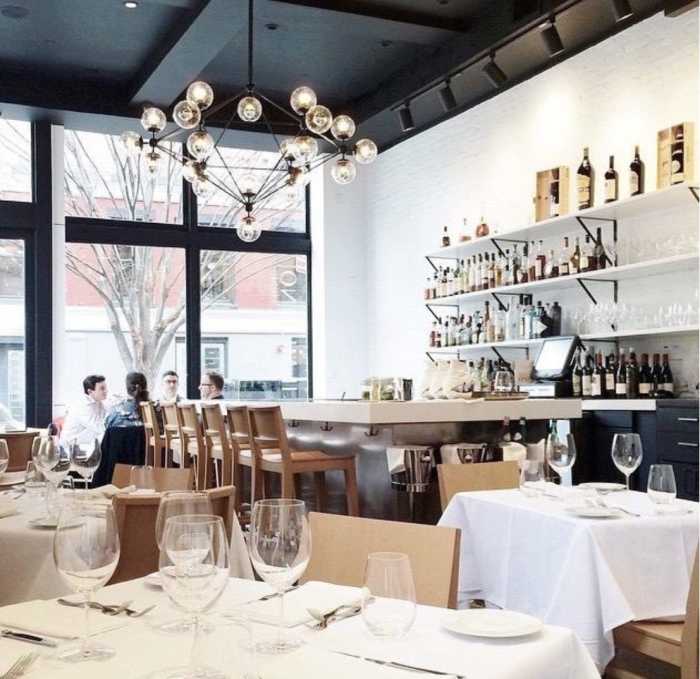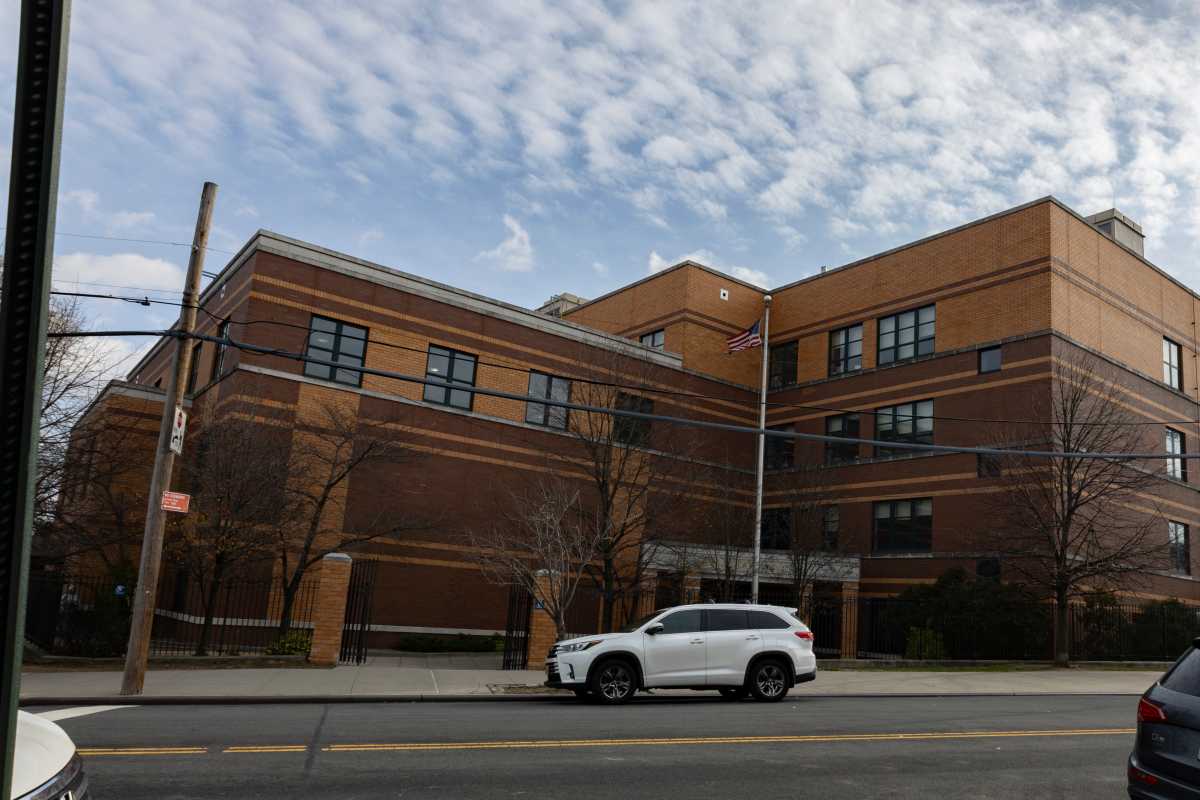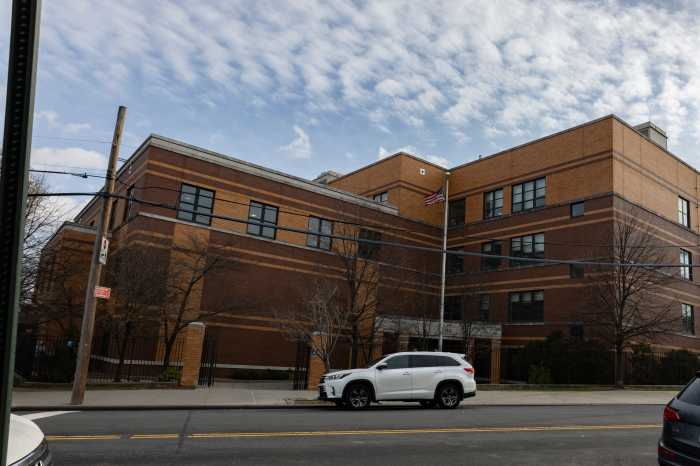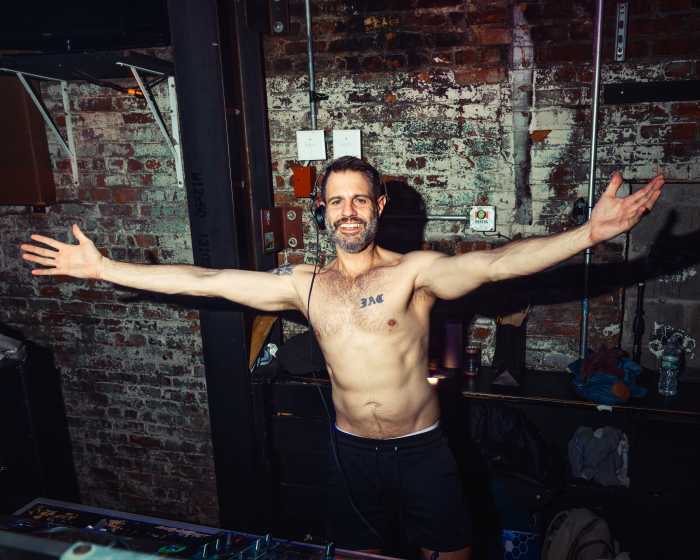The Guggenheim does not always breathe. On most nights, it pulses with polite tension, full of murmurs, well-heeled restraint, and the usual art-world pageantry. This was not that night.
Opening Night for Rashid Johnson: A Poem for Deep Thinkers arrived as a full-throated incantation. The rotunda, normally pristine and composed, was rattled to life by the elemental power of Kahil El’Zabar’s Ethnic Heritage Ensemble. The evening opened with a walking performance—a procession, really—of rhythm, body, brass, and breath. Their piece, Heart & Soul, did not begin the night; it claimed it. Viewers followed as the sound wove through the spiral with ancestral purpose, turning Frank Lloyd Wright’s sacred geometry into a kind of sonic tabernacle.
This was a show of art as altar. Rashid Johnson’s works towered, cracked, whispered, and roared. His signature vocabulary—shelves of shea butter, CB radios, cosmic plants, black soap, mirrors fractured with meaning—appeared here with greater urgency. Rashid Johnson: A Poem for Deep Thinkers dared viewers to confront the elasticity of identity, to reckon with the architecture of Black pain and transcendence. It was not an exhibition. It was a spiritual siege.
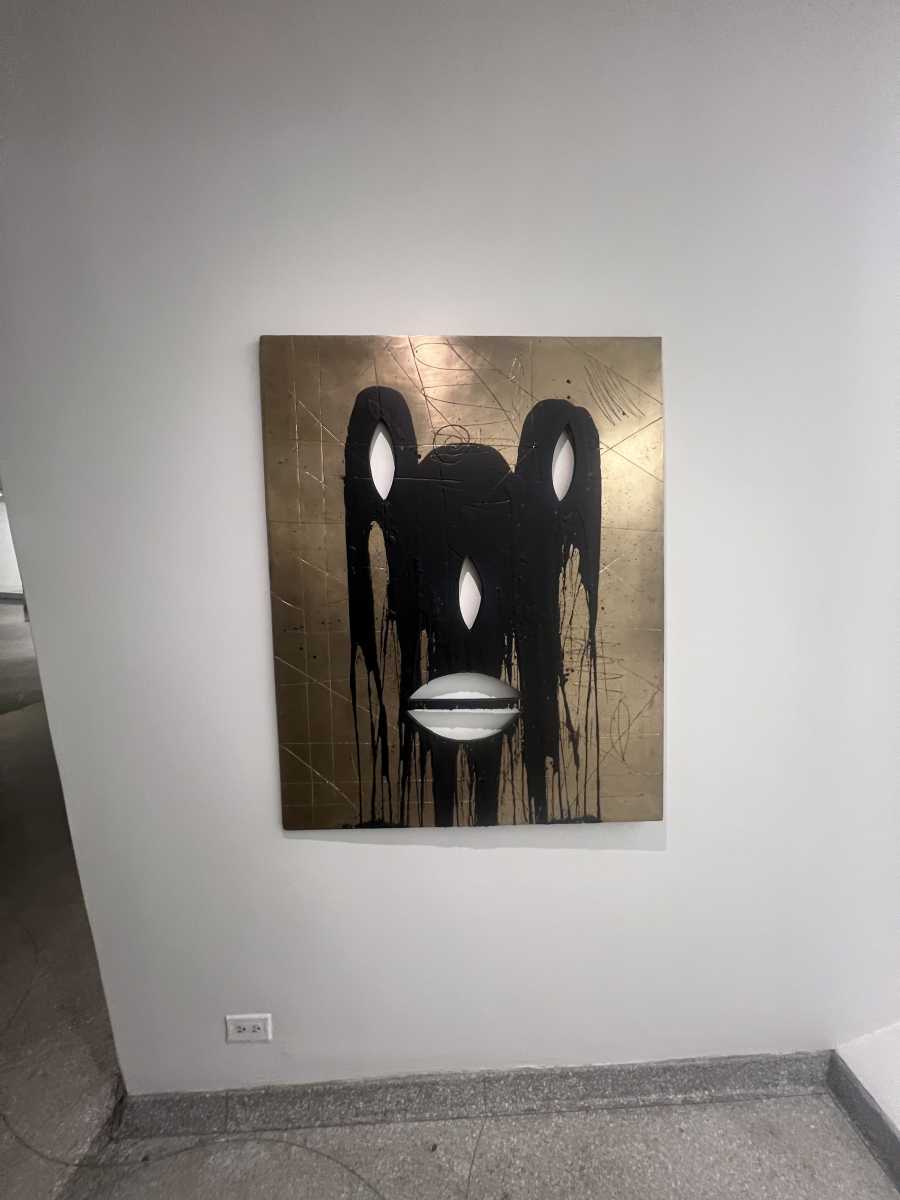
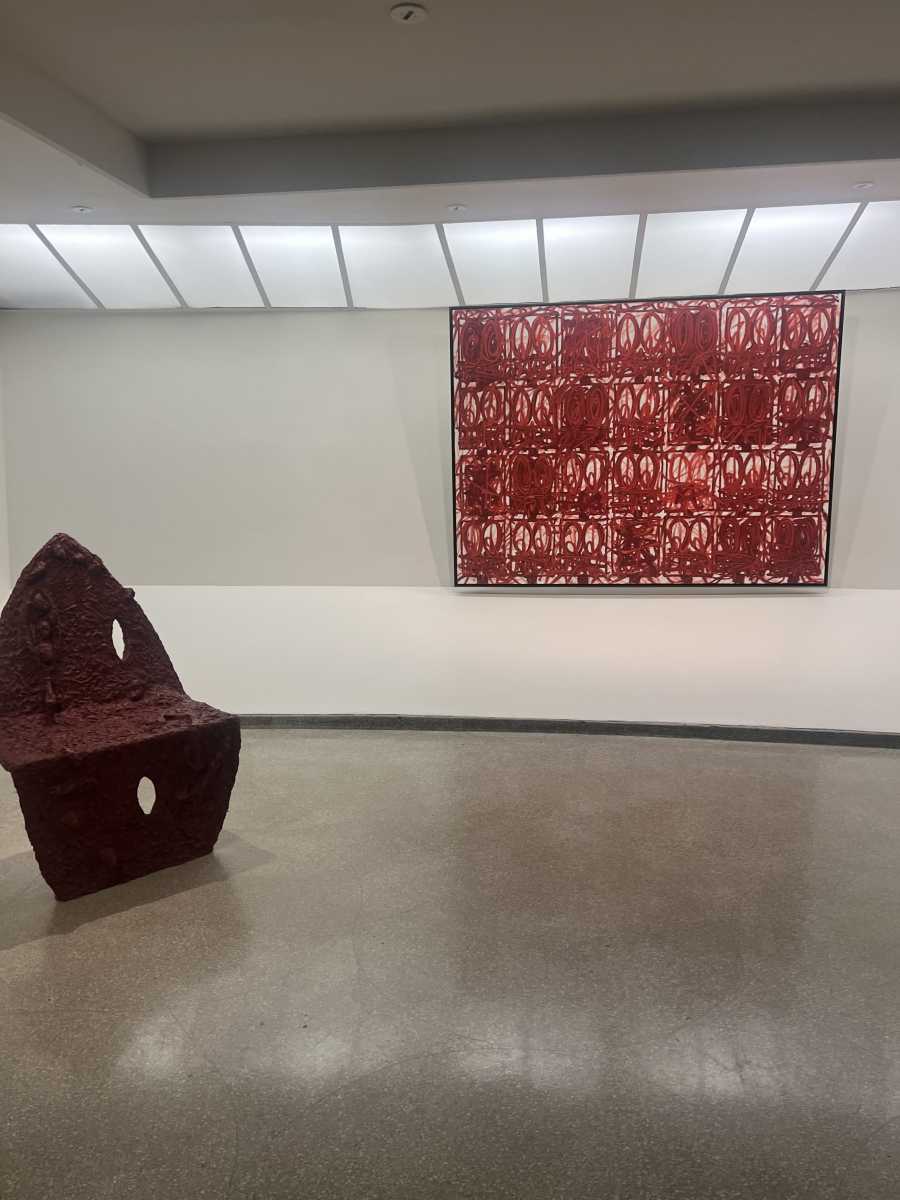
A sculpture the size of a confession booth gleamed with both menace and reverence. One collector leaned toward me and whispered, “It’s like the Baptist church and the apocalypse had a baby.” The observation was not inaccurate.
The crowd shimmered in conversation—diamonds flashing beside dashikis, Balenciaga whispering to custom Ankara. The room was not dominated by the usual monotone of wealth. This was a multiverse of power, fashion, and cultural fluency. A scene where Black excellence did not wait for permission to take space—it expanded it.
Rashid Johnson’s language is not metaphor. It is autobiography, recited through fire and form. His objects—stacked, cracked, polished, scrawled—hold court with the confidence of an elder and the electricity of a prophet. The materials speak of survival. The scale speaks of refusal. Rashid Johnson: A Poem for Deep Thinkers felt less like a museum show and more like a sermon delivered by someone who had already seen the other side and returned to tell us we’d better start paying attention.
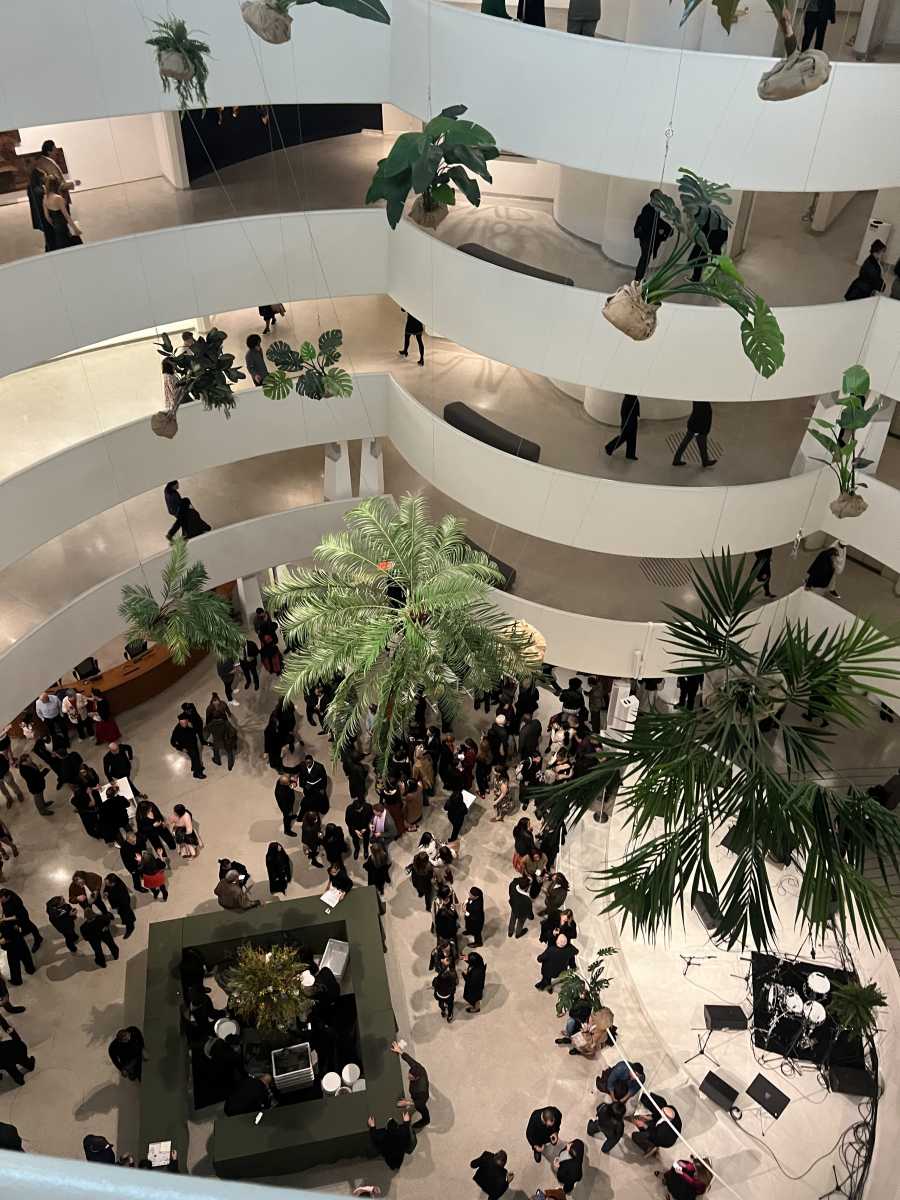
Collectors circled the works with equal parts awe and hunger. Conversations were not about pricing; they were about presence. There was no need to name-drop artists when the walls themselves were speaking.
By the time the jazz faded and the last flute of champagne was taken from a silver tray, the Guggenheim felt entirely transformed. The rotunda had become a compass—pointing inward, outward, and somewhere metaphysical. Rashid Johnson had not merely installed work. He had infused the space with the kind of Black radical presence that does not ask for inclusion—it asserts dominion.
This was not a night of polite applause. It was a night of velvet thunder. A night where collectors did not just collect—they bore witness.



